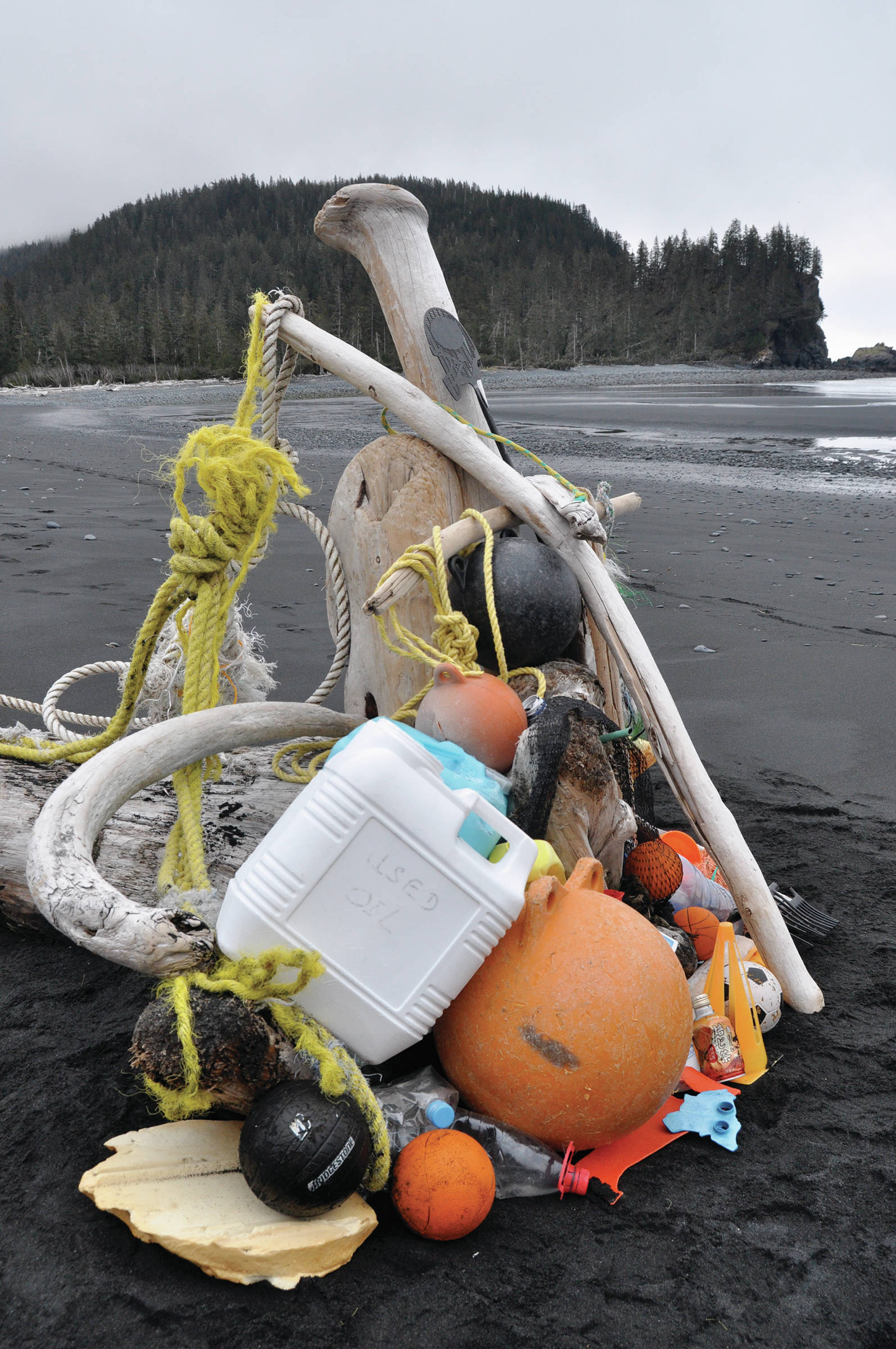My adventure begin with Jaden, my friend from Denver Colorado. Jaden came to Alaska to visit and help with the marine debris cleanup left over from the results of a tsunami from Japan. In early 2011, an earthquake in Japan caused a tsunami that dumped an unprecedented amount of marine debris on the West Coast of the United States and Gore Point, Alaska. Gore Point has always been known to be a collector of marine debris due to its location and currents. On our own act of volunteerism, we flew from Homer to Gore Point in a floatplane and landed at Gore Lake to assist with cleanup efforts. We camped in tents at Gore Lake for five days.
It’s not just my opinion but fact that marine debris has a lasting and ill influence on the ocean and marine life. They find birds starving because they accidentally ate something that might have been food or ingested something that might have been in the food they were eating. Either way, the debris can cause a dangerous blockage. Mammals are perishing because of ingesting plastics.
Marine debris has multiple sources: ocean-based and land-based. Ocean-based sources include fishing vessels (commercial and private), platforms such as oil and gas, to cargo and cruise ships. Land-based sources include storm water discharges, intentional or unintentional littering or dumping on land or in rivers that can wash out to sea and from extreme natural disasters. The debris from all of these sources can be blown, swept, dumped or driven to the sea. It has devastating effects on marine life and plants.
An Ocean Conservancy study found that the top items collected during annual cleanups are cigarette butts, food wrappers, plastic beverage bottles, bottle caps, straws/stirrers, plastic grocery bags, glass beverage bottles, beverage cans, plastic cups and plates. Plastic debris is a growing problem, and finding a way to reduce it or eliminate it along with finding alternatives is a globally recognized environmental issue that many organizations are trying to solve.
During our time at Gore Point we collected 15 bags of debris consisting of netting, plastic buoys, and numerous commercial fishing items. In addition, I found a Japanese vacuum and a 5-meter electrical pole; entire households were washing up on the beach from Japan.
As a 35-year professional photographer and budding artist, I created sculptured art pieces with the debris that I collected. After photographing the art pieces, I dismantled the “art” and bagged the debris. In the end we took five bags with us on the float plane and left ten bags on the beach berm for the Gulf of Alaska Keeper to pick up.
I found this experience very fulfilling. I routinely volunteer to keep the Alaska coastlines clean and beautiful. During the summer months I run kayak trips to the Prince William Sound, Kenai Fjords, and Kachemak Bay State Park. It is very heartbreaking to be on the water and find marine debris and animals who have suffered as a result.
Marine debris is a rising problem and shows no sign of reduction unless there is human intervention on our part. I feel if we stand locally and continue to fight statewide, we can reduce the effect that marine debris has on the environment. Only by being involved can we help lessen and being cautious of how we dispose of our trash in the future.
Tim Steinberg is a Homer photographer, artist and marine debris cleanup volunteer.
Tim Steinberg is a Homer photographer, artist and marine debris cleanup volunteer.


